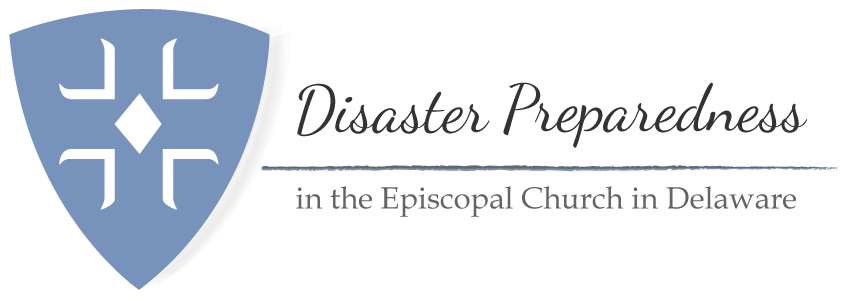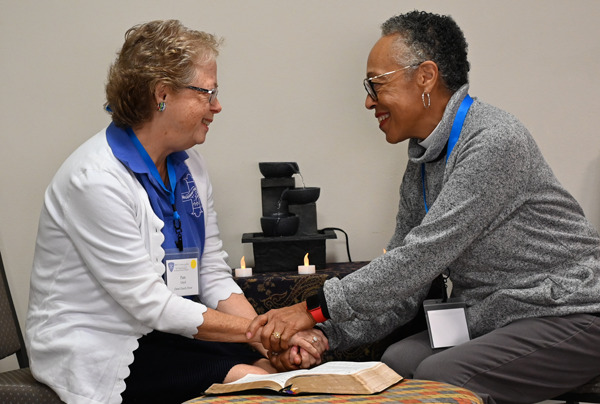
Why should we plan?
Preparedness gives us the peace of mind that we will have the resilience to withstand the effect of a disaster. We have many resources which can be used by communities, local parishes, parish schools, Camp Arrowhead, families, and individuals.
Did you know?
- Did you know that Delaware experiences a range of dynamic weather conditions? From heavy rains and intense winds to severe flooding, ice, snow, high temperatures, and drought, the state is susceptible to various weather phenomena that can potentially cause significant damage to property. Don’t wait to make a plan (see below), make a kit, stay informed.
- Disasters will continue to happen and preparedness is needed. According to the Delaware Emergency Management Agency (DEMA) a disaster can have many forms. It can be natural, a pandemic, an act of terrorism, an industrial accident or a cyberattack.
Where do I start?
Developing a Disaster Leadership team for your parish is one of the best practices to ensure that your church and congregation are well prepared. Team planning efforts and knowledge of the plan are the best remedy against chaotic responses to a disaster. What sort of roles will the team fulfill?
- Drafting and implementing church preparedness plans for multiple types of disasters
- Help to familiarize the congregation with the church’s role in preparation and response
- Share in ministries that foster church and community resilience
Do you know what your church would do in case of a hurricane, fire, flood, or other local emergency? Having a plan ensures that your staff and assets are protected. Planning for disaster may include:
- Establishing a working and pastoral communications network
- Staff evacuation and other safety precautions
- Keeping an up to date inventory of the church’s assets
- The church’s role in response and serving the greater community
- Resuming Sunday morning services as soon as possible
- Care of archives and records and many other considerations, at the discretion of the rector and the Disaster Leadership Team.
Planning can sometimes seem overwhelming! A diocesan representative is available to facilitate your church’s planning and to assist with its implementation. Contact Deacon Larry Norfleet, Diocesan Disaster Preparedness Officer at disasterofficer@delaware.church or, 302-602-0969 Plan templates are available through the Episcopal Relief and Development Disaster Program The plans are very thorough and highly customizable to suit your individual church’s needs. Plan templates range from the most comprehensive (Gold) to the least comprehensive (Bronze).
The Foundation of Preparedness and Response
Resilience is a measure of how well a community is able to recover from a disastrous incident. More than planning, preparedness, and response, it’s an intrinsic quality of healthy communities that sustains them during the grueling days after an event and fuels their recovery, often allowing them to come back stronger and more tightly knit than ever before. Community and state preparedness connections such as the City of Wilmington, State of Delaware, and Episcopal Asset Map of Delaware are key tools for support of Resilience.
Please contact:
- The Rev. Deacon Larry Norfleet, Disaster Preparedness Officer
- disasterofficer@delaware.church
- 302-602-0969
Resources:
- Emergency Alert System | Delaware (DEMA)
- Delaware Emergency Management Agency (DEMA) — 302-659-3362
- New Castle County (NCC)
- City of Wilmington — 302.576.3914
- Remaining NCC — 302.395.2700
- Kent County — 302.735.2200
- Sussex County — 302.855.7801
- DE BEST (Delaware Behavior & Emotional Support Team) — 302.824.2313
- Episcopal Relief and Development (ERD) — 1.855.312.4325
- Red Cross — 1.800.733.2767
Please check back later for a complete list of local coordinators.
(the above presentation was created and published by the Disaster Preparedness Team)





